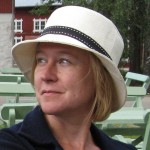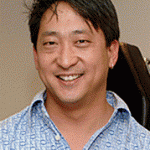Invited session – FES and Fun
Functional electrical stimulation (FES) is applied on different neuromuscular diseases, e.g. after stroke, spinal cord injury (SCI) and cerebral palsy (CP). FES is predominantly used therapeutically for improving function on the impairment (i.e., structural) level, as a neural orthosis during activity and to a lesser degree, for participation in the community. FES is a well-established modality and primarily used clinically, however, recently developed commercially available foot drop and hand function systems have made at-home use of FES possible and more widely accepted. As a result, at-home FES use for functional use had increased and alternate uses therapeutic exercise and participation in the community setting are emerging. Because FES use can be “boring” and tedious in the rehabilitation setting, making FES fun is a potentially strong driving factor to increase “dose” and facilitate the motor learning process. That is, if FES use is fun, therapy becomes transparent and may no longer be deemed boring or burdensome.
The purpose of this session is be less scientific and present the “fun factor” of FES use through clinical cases of FES training of individuals with SCI and from experiences gained during a randomized clinical study on the use of FES-assisted cycling for individuals with CP. Our examples will highlight how FES use can be motivating and supportive to rehabilitation goals.
Method: Case studies of six SCI patients, AIS D, that received either FES to improve function to muscles of the lower limbs, to the muscles of the trunk, or the upper limbs will be highlighted. For this case series, subjects first trained using FES, after classical physiotherapy, but during directed exercise. The subjects then transitioned to FES use during Wii and board game play. Additionally, experiences of subjects that participated in a randomized controlled study of FES-assisted cycling will be used to highlight carryover of cycling as an activity for exercise and participation in the community.
Objectives of the session:
1. To demonstrate how FES can be implemented in clinical practice to increase motivation
2. To illustrate possibilities of creating FES exercises with less technical equipment
3. To illustrate combined FES treatment with game play
4. To illustrate how game feedback can assist with motivation for exercise performance during clinical trials.
5. To illustrate how participation in a FES cycling clinical trial can be used to influence home and community use of cycling and create attitudinal shifts in exercise and lifestyle.
Organizers
 Ines Bersch – Swiss Paraplegic Centre, Nottwil (Switzerland). Therapy instructor for physio and occupational therapists in a team of 120 therapists. I am responsible for the advancement of functional electrical stimulation, robotics and the evidence of therapeutical treatments.
Ines Bersch – Swiss Paraplegic Centre, Nottwil (Switzerland). Therapy instructor for physio and occupational therapists in a team of 120 therapists. I am responsible for the advancement of functional electrical stimulation, robotics and the evidence of therapeutical treatments.
Paper 16 – Ines Bersch, Susanne Opel and Sabrina Koch. “FES and Fun.”
 Samuel Lee – Associate Professor, Department of Physical Therapy, University of Delaware, Newark, DE, USA and Research Associate and Scientific Staff, Research Department, Shriners Hospitals for Children, Philadelphia, PA, USA
Samuel Lee – Associate Professor, Department of Physical Therapy, University of Delaware, Newark, DE, USA and Research Associate and Scientific Staff, Research Department, Shriners Hospitals for Children, Philadelphia, PA, USA
